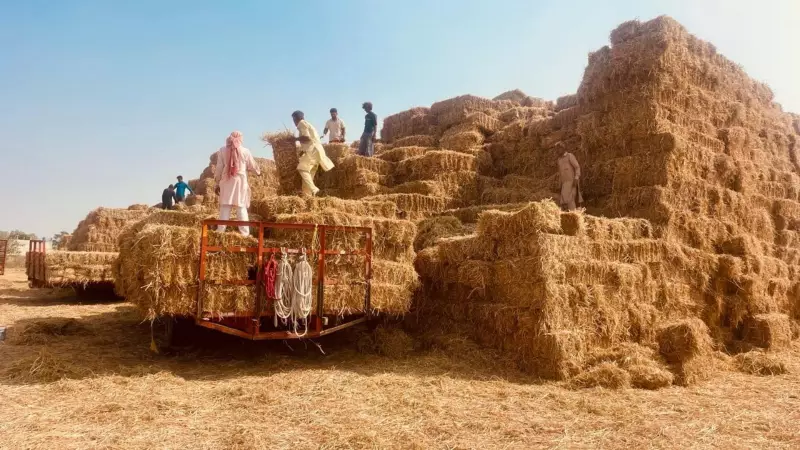
Farmers across Punjab are grappling with an unprecedented agricultural crisis as mountains of paddy straw bales continue to dot their fields, creating major obstacles for the crucial wheat sowing season. The situation has reached critical levels with collection delays threatening to derail the entire winter crop cycle.
The Uncollected Harvest Burden
Thousands of straw bales, the residual remains of the recent paddy harvest, stand abandoned in fields across the state. These compact bundles, meant to be collected and utilized, have instead become permanent fixtures on agricultural land. Farmers report that despite repeated requests and deadlines, the responsible agencies have failed to clear the bales, leaving cultivators in a state of limbo.
Wheat Sowing Season Under Threat
With the wheat sowing window rapidly closing, anxiety levels among the farming community are skyrocketing. The uncollected bales occupy precious land that should have been prepared for wheat cultivation weeks ago. Each passing day diminishes the likelihood of a successful wheat crop, potentially impacting food grain production and farmers' livelihoods.
Farmers Voice Their Frustration
"We were promised that these bales would be removed within days of being created. Now, weeks have passed, and we're staring at the possibility of missing the entire wheat season," shares Gurpreet Singh, a distressed farmer from Patiala district. "The government's crop residue management scheme seems to have collapsed when we need it most."
Environmental Time Bomb
The situation presents a dual crisis – agricultural and environmental. As pressure mounts, many farmers are considering burning the straw bales as a last resort, which could trigger massive air pollution across North India. This would negate the entire purpose of the straw management program initiated to prevent seasonal smog.
Administrative Response Falls Short
While district administrations have set multiple deadlines for bale removal, implementation remains lackluster. The companies and agencies tasked with collection cite logistical challenges and manpower shortages. Meanwhile, farmers bear the brunt of administrative inefficiency, facing potential losses running into thousands of rupees per acre.
The Way Forward
Agricultural experts suggest immediate intervention is required to prevent this crisis from escalating further. Possible solutions include:
- Emergency collection drives with extended working hours
- Financial compensation for farmers facing sowing delays
- Additional machinery deployment in worst-affected districts
- Extended wheat sowing window with alternative seed varieties
As the standoff continues, Punjab's agricultural community watches helplessly, hoping for a resolution that saves both their wheat crop and the environment from further damage.





